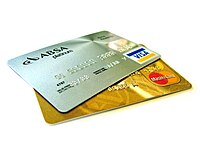OVERVIEW
Here are 10 tips to help you increase your FICO score by using credit responsibly.
In order to keep your finances in great shape and increase your FICO score, it is important to use your credit responsibly.
Your FICO score is a score created by credit bureaus such as Experian, Equifax, and TransUnion. Institutions lend money based on the FICO score created by credit bureaus. Here are some tips for keeping the FICO score in good shape.
1. To Increase Your FICO Score, Pay Your Bills On Time
Late payments have a negative effect on your FICO score. Do your absolute best to make sure every payment arrives on time. If you have missed payments, get caught up. The longer you have a good record of paying your bills on time, the more your FICO score will increase.
2. To Increase Your FICO Score, Keep Balances Low on Revolving Accounts
Credit cards are a type of revolving credit. This means you can pay off the line of credit and then use it again. Keep balances low on this type of credit. Having high amounts of credit card debt will lower your FICO score.
3. To Increase Your FICO Score, Pay Off Credit – Don’t Just Move it Around
Moving credit around is not the same as paying it off. Your FICO score will increase if you consolidate your credit. If you have a balance, but fewer open accounts, your FICO score will increase.
4. To Increase Your FICO Score, Don’t Open Accounts Your Don’t Need
People will often open a number of accounts in order to try to increase the amount of available credit. This strategy can often backfire and lower your FICO score, instead of increasing it.
5. To Increase Your FICO Score, Avoid Collection Accounts
Be aware that any account that has gone to collection will stay on your credit report for seven years. These accounts will negatively affect your FICO score.
6. To Increase Your FICO Score, Open Accounts and Pay Responsibly
If you’ve had trouble in the past with credit, it pays to open a new account and use it responsibly. Establishing a pattern of responsible credit use will help to increase your FICO score over time.
7. To Increase Your FICO Score, Avoid Closing Accounts
Closing an account doesn’t make that account disappear from your credit history. Each account you’ve opened and closed will show up on your credit report and will affect your FICO score.
8. To Increase Your FICO Score, Use Credit Cards
People who have no credit history have a difficult time obtaining credit. It’s important to obtain credit early on and use it responsibly. People who do this have higher FICO scores than someone who never uses credit at all.
9. To Increase Your FICO Score, Seek Credit Counseling
If you are in trouble with debt and your FICO score is lower than you would like, it’s a good idea to seek the advice of a legitimate credit counselor. These counselors can help you navigate your credit report as well as help you make a concrete plan to help you increase your score.
10. To Increase Your FICO Score, Remember it Takes Time
Remember, there are no quick fixes for increasing your credit score. It takes time to establish a good credit history, or to repair damaged credit. If you look at it as a process, you’ll be able to create solid goals and to achieve them.




![Reblog this post [with Zemanta]](http://img.zemanta.com/reblog_e.png?x-id=3b345a38-c000-4e4c-a92b-32e5506ff421)


![Reblog this post [with Zemanta]](http://img.zemanta.com/reblog_e.png?x-id=b1c0889f-a269-46b9-80df-c09b7a6951ca)

![Reblog this post [with Zemanta]](http://img.zemanta.com/reblog_e.png?x-id=b88ce353-ee2a-4d53-8caa-47250fcfdce8)

![Reblog this post [with Zemanta]](http://img.zemanta.com/reblog_e.png?x-id=363e26d2-0462-4b17-afc4-7d82393bf2cb)

![Reblog this post [with Zemanta]](http://img.zemanta.com/reblog_e.png?x-id=d6be7034-32ad-462c-a74c-4b864ec93f42)
